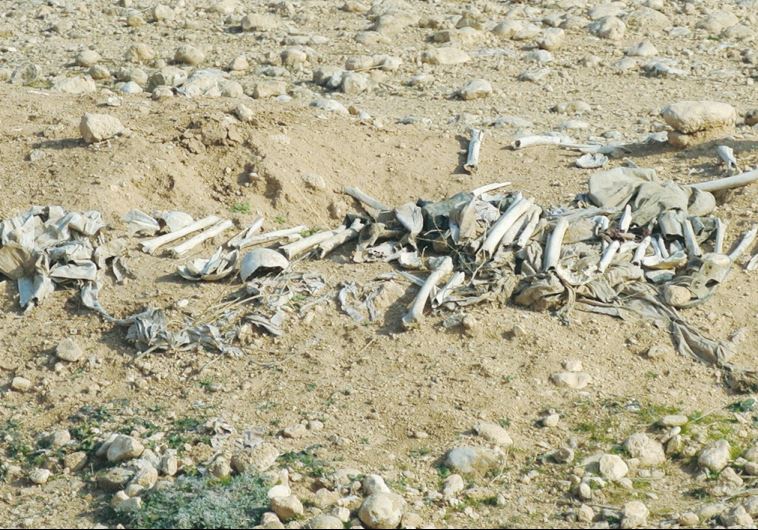Activist: Doors closed for Iraqi Christians, Yazidis – just like the Jews
Massacres committed by Islamic State against Yazidis mean they “can’t trust their Sunni neighbors again.”
 A MASS GRAVE of Yazidi victims of Islamic State is seen near Sinjar, Iraq.(photo credit: SETH J. FRANTZMAN)
A MASS GRAVE of Yazidi victims of Islamic State is seen near Sinjar, Iraq.(photo credit: SETH J. FRANTZMAN)